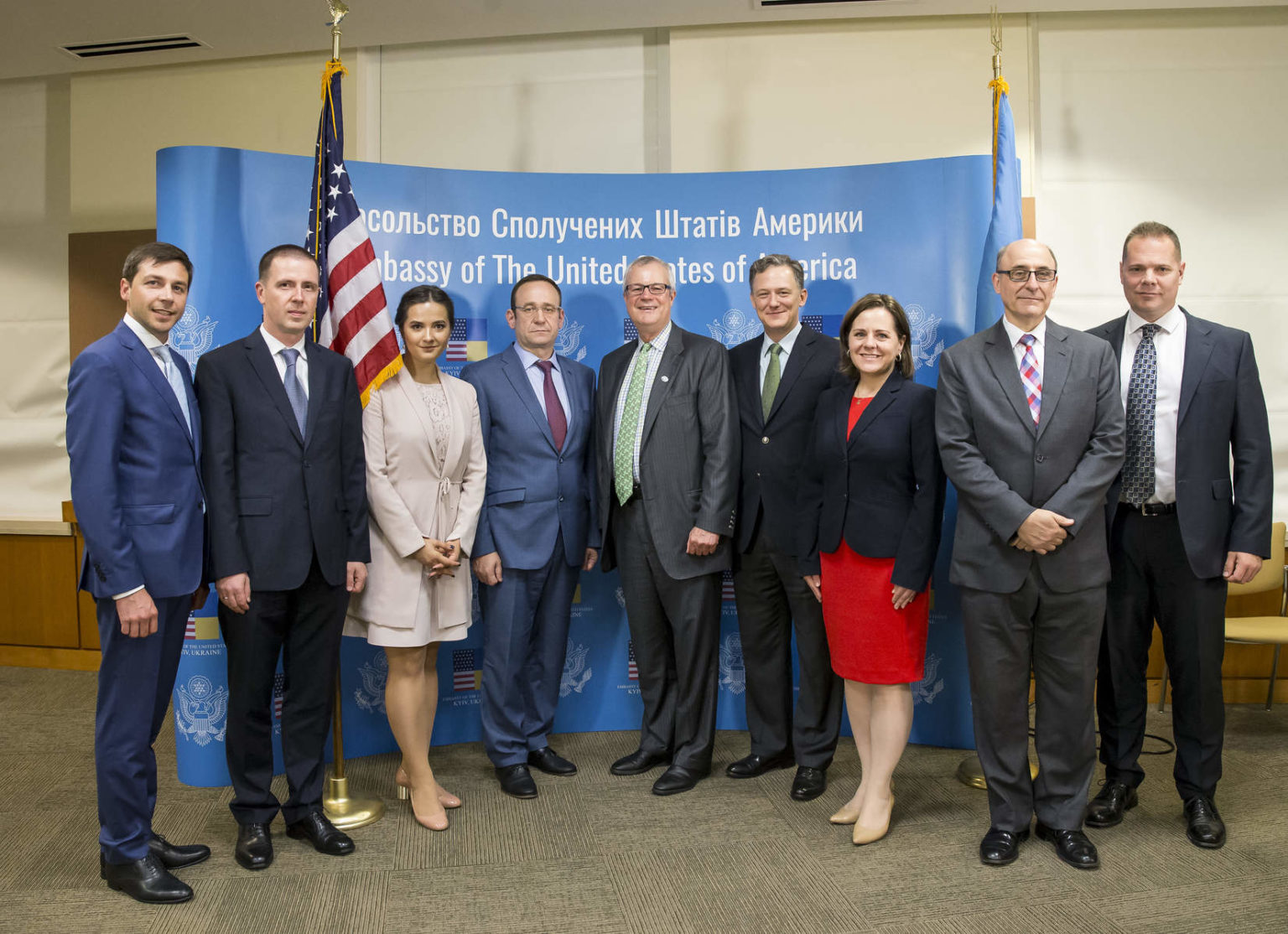Export levels of coal produced in the U.S. shot up earlier this year, as President Donald Trump assumed the White House, in what his administration has dubbed the age of “energy dominance.”
For the first quarter of 2017, export levels grew 58 percent compared to the same quarter last year, according to the U.S. Energy Information Administration. The news comes as the Trump administration recently helped broker a major coal export deal between Pennsylvania-based coal production company Xcoal Energy and Ukranian company Centrenergo PJSC.
That deal, which will see 700,000 tons of thermal coal shipped from XCoal’s mines to Centrenergo power plants in Ukraine, was applauded by both U.S. Secretary of Energy Rick Perry and U.S. Secretary of Commerce Wilbur Ross.
Although Trump’s presidential campaign is under scrutiny for its potential connections to Russian operatives, Ross praised the coal deal in the name of fending off Kremlin influence.
“Today’s announcement will allow Ukraine to diversify its energy sources ahead of the coming winter, helping bolster a key strategic partner against regional pressures that seek to undermine U.S. interests,” Ross stated in a press release. “In the past, Russia has tried to choke off opposition to its ambitions by restricting the flow of natural gas to its western neighbors.”
Perry also lauded the deal as a way of beating back Russian energy dominance in that region. Russian-backed separatist rebels currently occupy Ukraine’s coal-rich region and have commandeered the mines, making coal extraction in the area currently untenable.
“In recent years Kiev and much of Eastern Europe have been reliant on and beholden to Russia to keep the heat on. That changes now,” stated Perry. “The United States can offer Ukraine an alternative, and today we are pleased to announce that we will. U.S. coal will be a secure and reliable energy source for Centrenergo and its electricity customers.”
According to the joint Commerce Department/Energy Department press release, shipments of coal to Ukraine will begin in late August and early September in time to stockpile for the winter season. Those shipments, according to Kyiv Post, will come mostly via the Port of Baltimore.
In June, President Trump met with Ukranian President Petro Poroshenko, which, according to the U.S. Embassy in Ukraine, prompted the deal.
“U.S. coal will bolster critical stockpiles for the winter heating season,” George Kent, Deputy Chief of Mission in Ukraine, said in prepared remarks at a ceremony marking the deal between XCoal Energy and Centrenergo. “We applaud the Government of Ukraine’s dedication to diversifying supplies, and we hope that this deal augurs even deeper cooperation between our two countries in this critical sector.”
Much of the coal will come from mines in eastern Pennsylvania and will be transported via rail by Reading and Northern Railroad and Norfolk Southern.
“Reading & Northern is delighted to be partnering with Xcoal and Norfolk Southern on this wonderful opportunity,” Reading and Northern Railroad CEO Andrew Muller, Jr. said in a press release. “Our years of investment in coal cars and our branch line rail system pays off with our ability to turn on a dime and handle the movement of 30+ unit trains in 5 months.” (A unit train carries only a single commodity.)
Some industry analysts believe that, though U.S. coal exports are riding high at the moment, that could easily change as global coal demand ebbs and flows.
“In the long-term, U.S. exports face multiple challenges,” wrote CNBC. “China is scaling back plans for new coal-fired power plants. India aims to produce more of the coal it consumes. South Korea’s new president has plans to wean the country off coal.”
Previous Beneficiary
XCoal and Centrenergo have both previously benefited from U.S. government intervention.
Under the Obama administration, XCoal landed a $90 million loan guarantee in May 2012 from the U.S. Export-Import Bank to facilitate shipping coal to Asian countries such as China, Japan, and South Korea. That loan was subject of a lawsuit from environmental groups, though it was eventually dismissed in federal court, and came amidst the 2012 presidential campaign as Obama sought votes in battleground coal states such as Ohio and Pennsylvania.
“The Ex-Im Bank has once again demonstrated its commitment to the world’s most heavily polluting fuel: coal. Their fondness for the financing of coal comes at the expense of U.S. taxpayers and local communities by sacrificing competitiveness, jobs, and local environments to prop up a dirty and outdated industry,” Justin Guay of Sierra Club’s International Climate Program said at the time the deal was signed.
And during Bill Clinton’s administration, Centrenergo executives and officials received U.S. coal industry training in procurement and financing from the U.S. Agency for International Development (USAID) as part of its Energy Industry Partnership Program (EIPP). Russian utility companies were also trained under the same program.
“The objective of the EIPP is to establish long-term cooperative relationships between U.S. and [New Independent States] energy enterprises that provide a mechanism for the U.S. energy industry to transfer its experience in market-based energy production, transmission, and distribution to its counterparts,” explained a USAID document from October 2000.
LNG Exports
In addition to exporting coal, XCoal also has entered the export game for natural gas. Its subsidiary XLNG Energy plans to facilitate exporting gas obtained via hydraulic fracturing (“fracking”) in Pennsylvania’s Marcellus Shale basin.
“The creation of XLNG demonstrates our commitment to supplying our long term business partners with products necessary to meet their resource needs in a changing energy landscape,” Ernie Thrasher, CEO of Xcoal, said in 2015 of the new subsidiary.
Main image credit: U.S. Embassy in Ukraine
Subscribe to our newsletter
Stay up to date with DeSmog news and alerts







